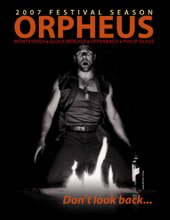Steven Blier Masterclass
One of the many perks of being one of Glimmerglass’ 29 Young American Artists is masterclasses with true masters in the field. Attending these masterclasses means watching the finest teachers of today work with some the most promising young artists of tomorrow. Reading these singers’ biographies is like reading a roster of the nation’s finest music schools and conservatories, such as The Juilliard School, Cincinnati College-Conservatory of Music, and New England Conservatory. Glimmerglass’ Artistic and General Director Michael McLeod pointed out that the over 800 applications to the program “almost by definition suggests that the standard is extremely high”. Steven Blier’s resumé speaks for itself—Artistic Director of New York Festival of Song, faculty at Juilliard, collaborative pianist for recitals with great artists including Renée Fleming and Samuel Ramey, writings appearing in The Yale Review and Opera News, and a long, Grammy-winning discography, ranging from German lieder to Gershwin. Although these are all indicators of a good masterclass to come, the teacher must be able to keep the class interesting for three hours. Steven Blier certainly met and surpassed this basic requirement.
Steven Blier’s resumé speaks for itself—Artistic Director of New York Festival of Song, faculty at Juilliard, collaborative pianist for recitals with great artists including Renée Fleming and Samuel Ramey, writings appearing in The Yale Review and Opera News, and a long, Grammy-winning discography, ranging from German lieder to Gershwin. Although these are all indicators of a good masterclass to come, the teacher must be able to keep the class interesting for three hours. Steven Blier certainly met and surpassed this basic requirement.
Blier addressed many issues that come up in a masterclass right after the thunderous applause for him ceased. He pointed out that not all teaching can be done in a public setting. From the moment he started speaking, the air of a lecture evaporated from the room; this was a discussion and a mentoring conversation. The philosophy of music was a focus.
Music is a thought process as well as an intricate art form; the voice is as personal and unique as the singer, and the strength it takes to be vulnerable is monumental and one of the biggest challenges facing performers. To use a masterclass as a laboratory, a Socratic vocal forum, seemed to be Blier’s intention and he certainly fulfilled it.
Singers Juliet Petrus, soprano; Todd Boyce, baritone; Margaret Gawrysiak, mezzo-soprano; Jon-Michael Ball, tenor; and Susan Jean Hellman, soprano, each presented one art song or aria. Blier made his intentions clear at the beginning of the masterclass. “I would see teachers bring up issues in masterclasses that I felt were not effectively dealt with in public. I once watched a very famous opera singer whom I had admired a great deal as a child. She spent the whole class trying to get everyone’s tongue into a certain position. Is this what made you a great Carmen? I seriously doubt it.”

Hellman, like the other Young American Artists, integrated Blier’s suggestions into her performances, using his expert feedback to improve their expression. Much of a singer’s success is dependent on judge’s or director’s impressions of the singer, so getting as much feedback as possible is crucial for these young singers to make it in the world of opera.
